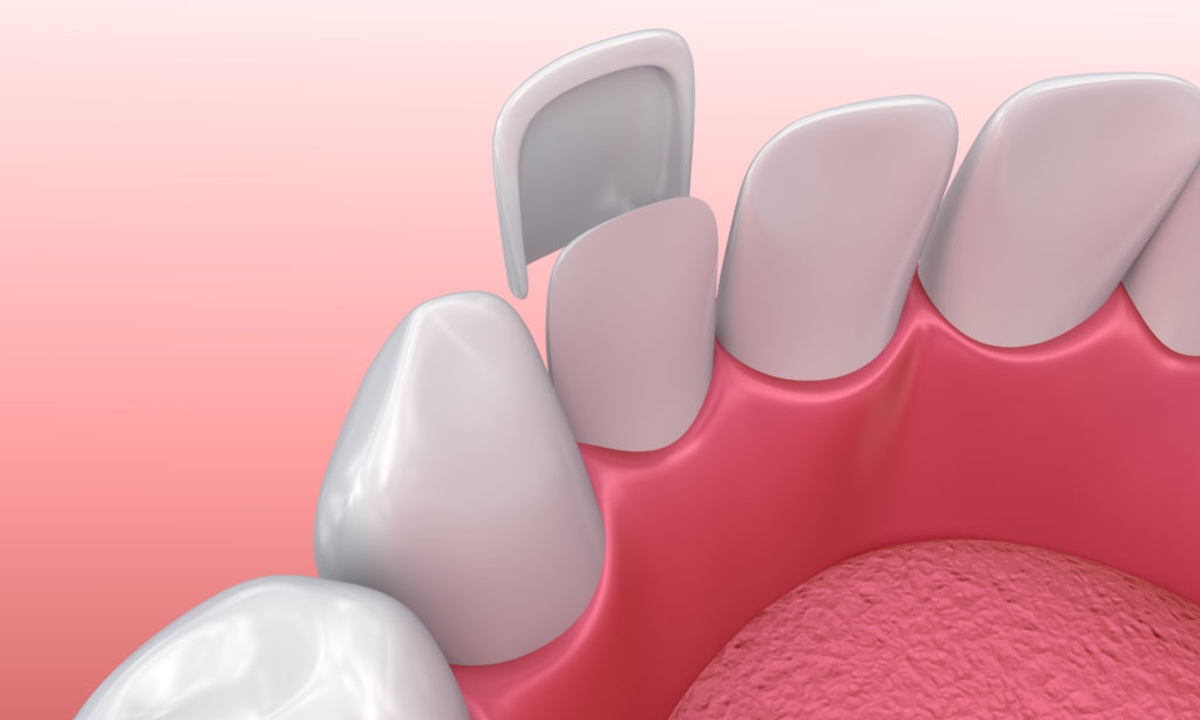Sharing an unguarded smile isn’t easy when you feel self-conscious about dental imperfections. Dental veneers, especially porcelain veneers, offer a solution. They are thin, tooth-coloured shells placed on the front of a tooth to cover cosmetic flaws and create a straighter, whiter smile. But this is a big investment, so it’s natural to wonder how long they last.
If you’re considering dental veneers, you’ll likely be given two options—composite veneers or porcelain veneers. Both have benefits and drawbacks, but let’s explore the most important question: how long do dental veneers last, and what determines their success?
The Lifespan of Veneers

The lifespan of dental veneers depends on the type of material used and how well they’re cared for. Porcelain veneer teeth typically last between 10 to 12 years, while composite veneers need replacing sooner, usually lasting around 4 to 8 years. Regular dental hygiene and avoiding habits like nail-biting can extend their lifespan.
Composite Veneers
Composite veneers are made from resin and offer a more affordable option.
Benefits:
- Less expensive than porcelain veneers
- Chips and cracks can be repaired easily
- Minimal enamel removal
Drawbacks:
- Less durable; stains show up more easily
- Shorter lifespan than porcelain veneers (4-8 years)
- They may look bulkier compared to porcelain veneers
Porcelain Veneers
Porcelain laminate veneers are known for their durability and natural appearance.
Benefits:
- Long-lasting and stain-resistant
- Looks extremely natural
- Can last 10 to 12 years with proper care
Drawbacks:
- Damaged porcelain veneers must be replaced, not repaired
- Treatment may take longer (usually around 3 days)
- More costly than composite veneers
Composite vs. Porcelain Veneers: What’s the Difference?

Composite veneers are made of resin mixed with glass, layered onto the tooth and shaped in-office. In contrast, porcelain veneers are thin, custom-made shells bonded to the front of the teeth. Both enhance your smile, but the material and process differ.
Veneer Appearance
Porcelain veneers look more natural than composite veneers, which can seem bulkier and less translucent. This is because porcelain reflects light in a way that closely mimics natural teeth. Composite veneers, although more affordable, may not achieve the same level of realism.
Veneer Durability and Lifespan
Porcelain veneers tend to last longer, with an average lifespan of 10 to 12 years, thanks to their durability and stain resistance. Composite veneers, while more affordable upfront, typically last only 4 to 8 years and are more susceptible to chips and stains.
Cost Comparison: Composite Veneers vs. Porcelain Veneers
Composite veneers are more budget-friendly, costing significantly less than porcelain veneers. However, because porcelain lasts longer and maintains its appearance better, it may be more cost-effective in the long run.
Maintenance and Care for Veneers
Both types of veneers require regular brushing and flossing, as well as professional cleanings. However, porcelain veneers resist stains better, while composite veneers might need more frequent polishing to maintain their appearance.
Do I Need to Replace My Veneers?

Most patients do need to replace their veneers at some stage. Porcelain veneers generally last up to 12 years, while composite veneers may last around 8 years. When it’s time to replace them, your dentist will carefully remove the old veneers and prepare your teeth for the new ones.
A tiny amount of enamel is removed with the old veneers. In some cases, if there’s not enough enamel left, a crown may be a better option.
Why Do Veneers Need to Be Replaced Over Time?
Over time, several factors can lead to veneer replacement:
- Gums recede, exposing the margin between the veneer and the root, causing discolouration.
- Veneers may chip or break as they wear down from daily use.
- Bite changes, tooth erosion, or decay can cause veneers to become loose or damaged.
Why Do Composite Veneers Need to be Replaced Sooner?
Composite resin veneers are made of less durable material, so they chip and break more easily. They also stain more quickly than porcelain veneers. This means that composite veneers often need replacing after 4 to 8 years, whereas porcelain can last longer.
Are Veneers the Right Choice for a Long-Lasting Smile?

Veneers are a great option for those wanting to hide minor imperfections and smile confidently. Veneers can fix many different types of cosmetic concerns:
- Broken, chipped, or cracked teeth
- Discoloured or stained teeth
- Gaps between teeth
- Crooked or misshapen teeth
However, they aren’t suitable for everyone. People with active gum disease or severely damaged teeth may need alternative treatments. Your dentist will guide you to the best solution.
Where Is the Best Place to Get Veneers for Long-Term Results?
When getting veneers, finding the right dentist is key. At Mona Vale Dental, we offer Digital Smile Design (DSD), a cutting-edge technique that lets you “test drive” your smile before committing to treatment. This ensures you’re completely happy with your new veneers before they’re made.
Most clinics can’t offer DSD, but Mona Vale Dental is accredited to provide this unique service. If you want stunning veneers or have any questions about DSD, reach out to our team at (02) 9997 1100.


